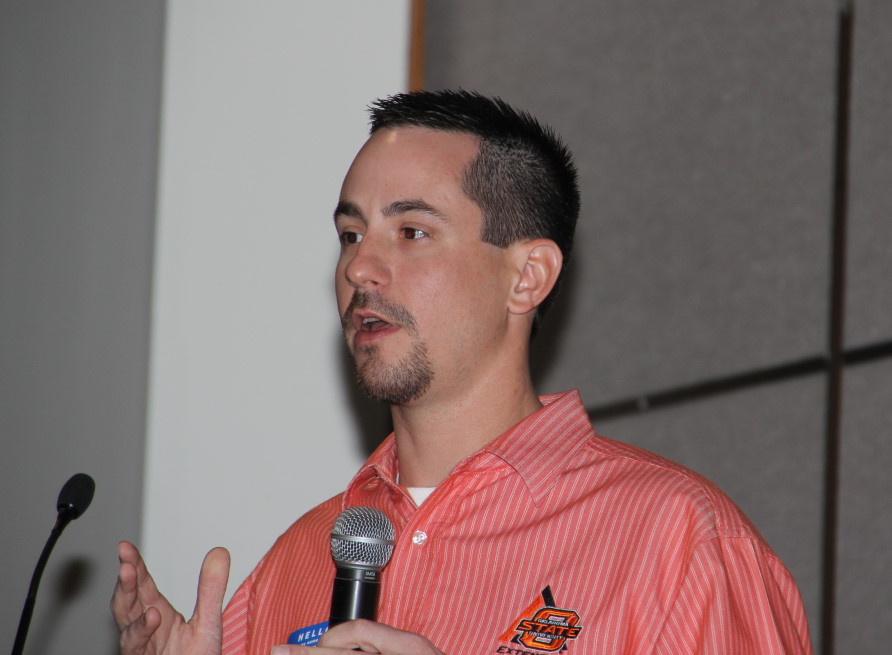
Agricultural News
Canola College 2014- Brian Arnall Says Paying Attention to Basic Fertility Yields Best Results
Thu, 27 Feb 2014 11:36:30 CST

Raising a successful canola crop is not a mysterious undertaking according to Oklahoma State University Extension Soil Fertility Specialist Brian Arnall. Speaking at the latest Canola College event, he tells Radio Oklahoma Network Farm Director Ron Hays that it all boils down to paying attention to detail and getting things right from the very beginning.
"We're finding out more and more every day that fertility is having a bigger impact as far as any other crop. I'm seeing specifically in winter survivability, soil fertility is really playing a key role in how these plants are making it through the winter and through some of our harsh falls and into the winters, especially this year.
"Soil pH and soil test phosphorous has been a key element on whether or not that plant is making it through. Areas that have low pH are not surviving. Areas that have low soil test phosphorous and have not had any phosphorous applied are not surviving. It is just not making it through the winter."
Arnall says producers need to be aware that canola is a little different in its fertility requirements than are other crops and it is a particularly heavy feeder when it comes to sulfur. The plant's demand for sulfur, however, is lower in Oklahoma than it is in Kansas due to soil nutrient profiles. However, Arnall says, "as we bring canola into more of a rotation, I expect in the years to come we'll see more of a response and that's something we need to keep track of via soil tests and just really watching closely in the field."
With the introduction of canola into the Southern Plains, there had been some concern that micronutrients might be a problem. Arnall says he has studied the issue for the last four or five years and has never had a response when soil tests indicated an adequate level of micronutrients.
"I've done, I'd say, about a dozen response studies to micronutrients in canola. I have never had a soil that was low in any of these nutrients. I would say that if your soil test does come back below that recommended level that you need to apply because you're going to lose. A soil test is your key judge. If your soil test does not say that you need any, we've never had a response on any of the trials. We've done a lot of applications-early-, mid-, and late-season foliar applications-of a great deal of nutrients and it all comes down to if the plant doesn't need it, you won't get yield response."
Arnall says the biggest thing growers can do to ensure an optimal crop is to simply slow down.
"For me, a big impact in canola production and getting it right is slowing down, taking your time and watching the crop. That means slow down at planting. Slow down at all aspects of it and watch your crop as it grows. Just keep a better eye on it than we may have traditionally done with our winter wheat. Treat it, baby it a little bit, and it's going to have a big return."
Click on the LISTEN BAR below to hear more from Brian Arnall and Ron Hays.
WebReadyTM Powered by WireReady® NSI
Top Agricultural News
More Headlines...




















